If you love being around water and helping others achieve their full potential, becoming a swimming coach may be the perfect career path. A swimming coach works with competitive or recreational swim teams to train athletes through practices and competitions. Your resume as a coach needs to stand out from other applicants, so it’s helpful to read this article first. Working as a swimming coach allows you to combine your passion for water activities and aiding people in reaching their full potential. There are many opportunities for coaches, including at the collegiate level, high schools, private clubs, and summer camps. This is because there are so many different types of sports that need coaches to train athletes and assist them during games and competitions. Read on to learn more about what it takes to become a swimming coach and tips on how to write an effective resume as a coach.
Swimming Coach Resume Example

Download This Swimming Coach Resume as PDF
Swimming Instructor Resume Example
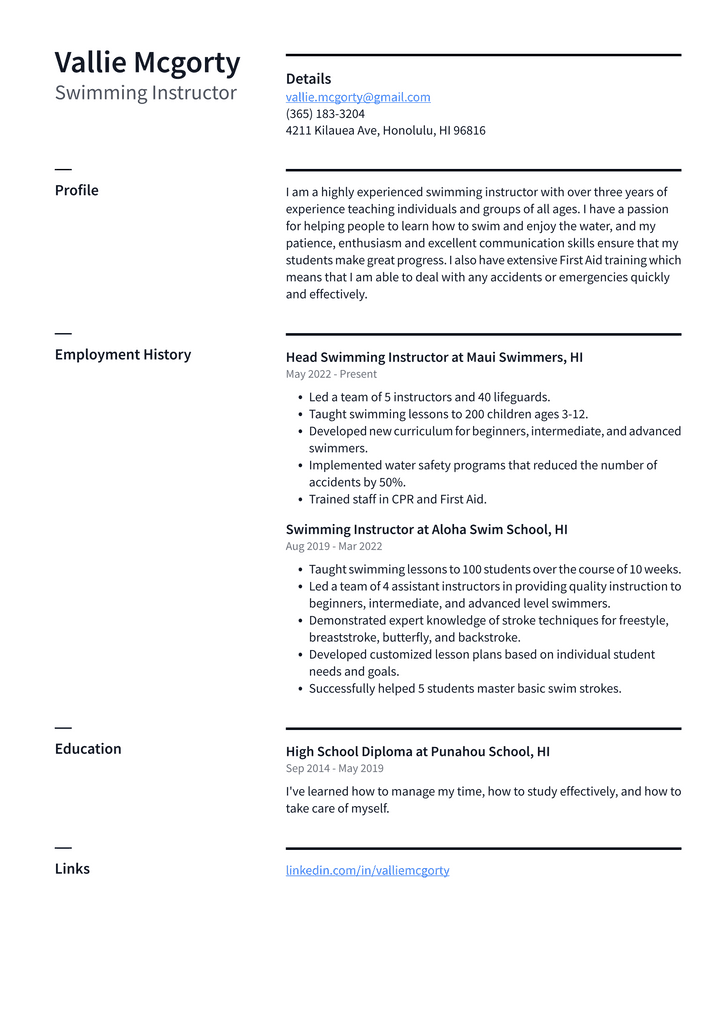
Download This Swimming Instructor Resume as PDF
Aquatics Director Resume Example
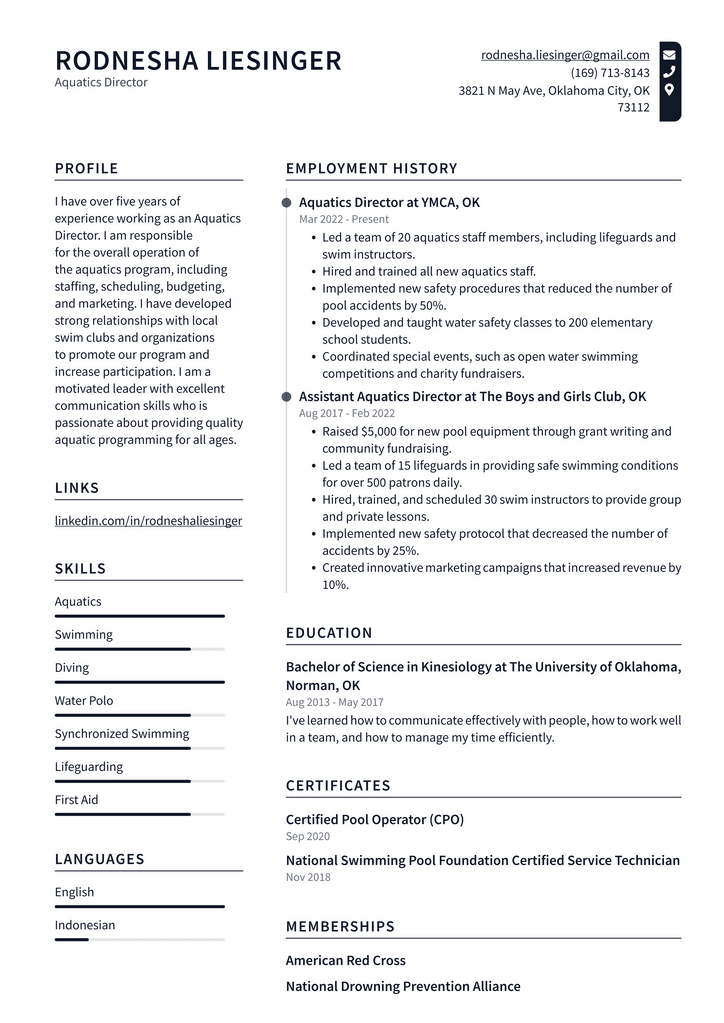
Download This Aquatics Director Resume as PDF
Aquatics Coordinator Resume Example
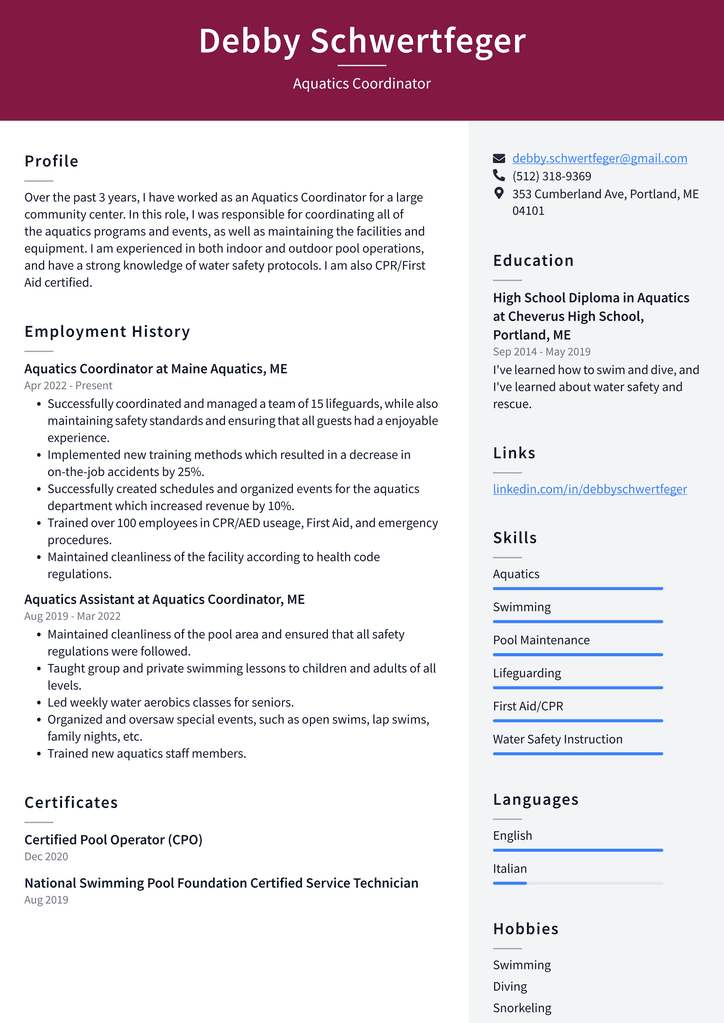
Download This Aquatics Coordinator Resume as PDF
Aquatics Manager Resume Example
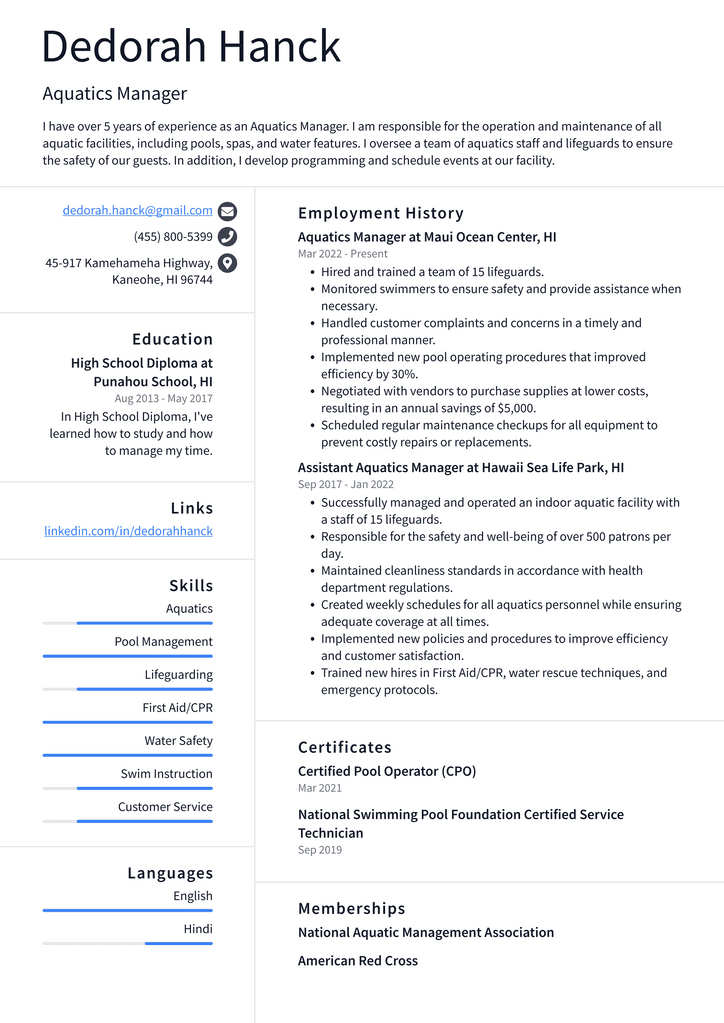
Download This Aquatics Manager Resume as PDF
Head Swim Coach Resume Example
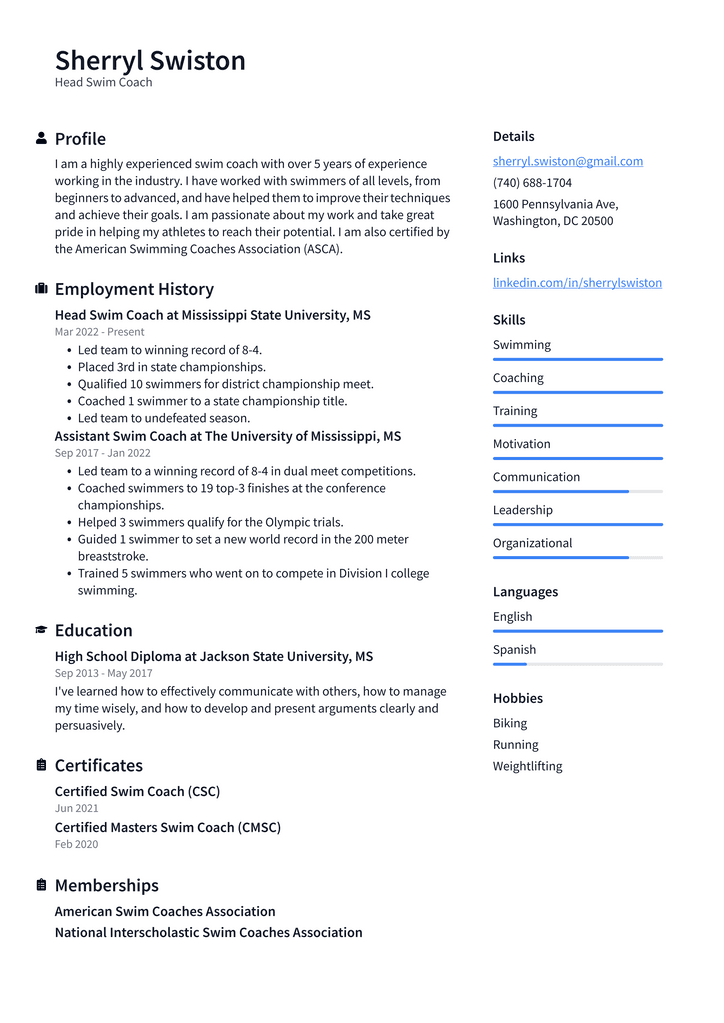
Download This Head Swim Coach Resume as PDF
Assistant Swim Coach Resume Example
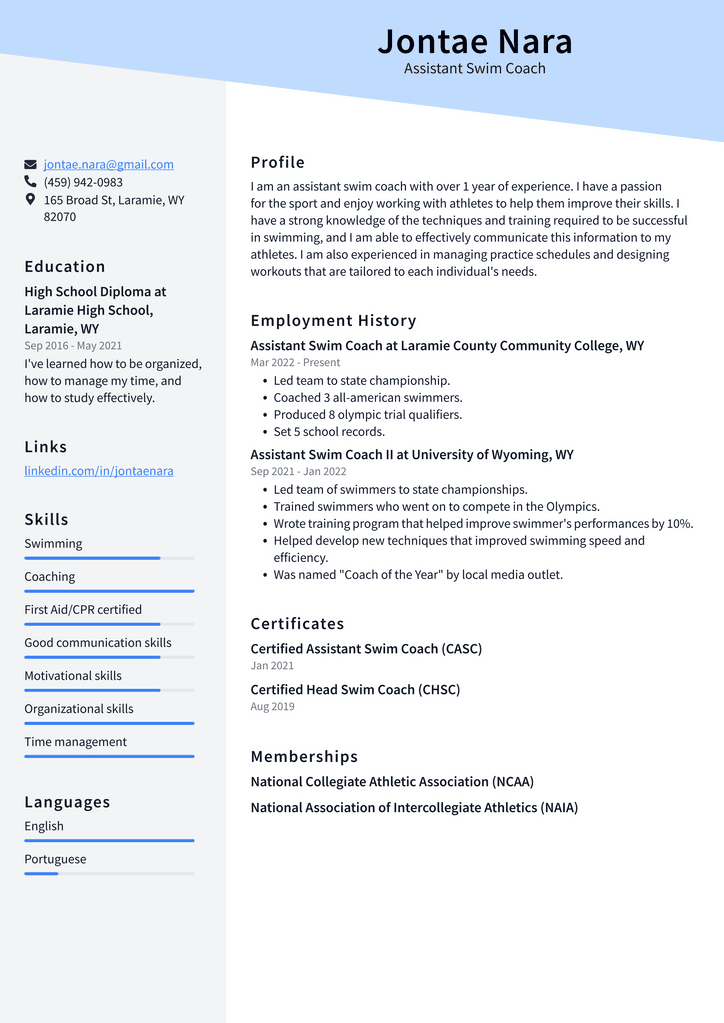
Download This Assistant Swim Coach Resume as PDF
What You Should Know About Becoming a Swimming Coach
First, it’s essential to know that there are two types of swimming coaches – professional and recreational. Professional coaches work with elite athletes and are often paid a salary; recreational coaches work with kids and adults participating in their sport for fun or fitness. Since there are two types of coaching, there are also two types of resumes. Professional coaches often have a bachelor’s degree in a sport-specific coaching field, such as kinesiology or health and physical education. While there are no specific educational requirements to become a recreational coach, most recreational coaches have a background in the aquatic or fitness field, such as teaching swim lessons or working as a lifeguard. In most cases, you won’t need a college degree, but you’ll need relevant work experience.
Swim Coaching Requirements
There are no specific swim coaching requirements, and you don’t need to have a particular skill level in the water. Many coaches are former swimmers themselves, maybe even Olympians or national champions. However, finding a team or organization that fits your interests and personality is essential. If you’re unsure where to begin, contact local swim teams and ask if they need coaches. You can also check with your local YMCA, community pool, or college athletic department.
How to Become a Swimming Coach
To become a swim coach, you’ll first need to find a team or organization in your area in need of coaches. You can also check with your local YMCA, community pool, or college athletic department. Once you’ve identified a team, you’ll need to send an email or call the coach and let them know that you are interested in coaching with their team. Once you’ve been accepted, you’ll need to attend a coaching clinic and learn the ins and outs of the sport. The frequency and length of the clinics will depend on the sport you’re coaching, but most clinics are one to two days long.
Tips for Writing a Good Resume as a Coach
As a coach, you must showcase your coaching experience and interpersonal and communication skills. To do so, your resume should include the following sections: – Summary: A brief overview of your coaching experience, skills, and education. – Experience: A list of the teams you have coached and the years you have coached them. – Education: Your degrees, certificates, and any coursework related to coaching or the sport you’re coaching. – Other Skills: Include any specialized skills or unique circumstances that may be relevant to the job, such as bilingualism. – References: Include contact information for a couple of references who can speak to your skills and coaching ability.
Conclusion
Swimming is a sport for all ages and skill levels, so it’s essential to have a variety of coaches on staff. However, hiring a coach for the first time can be stressful and overwhelming, so use this article as a guide for writing a great resume to help you land the job.